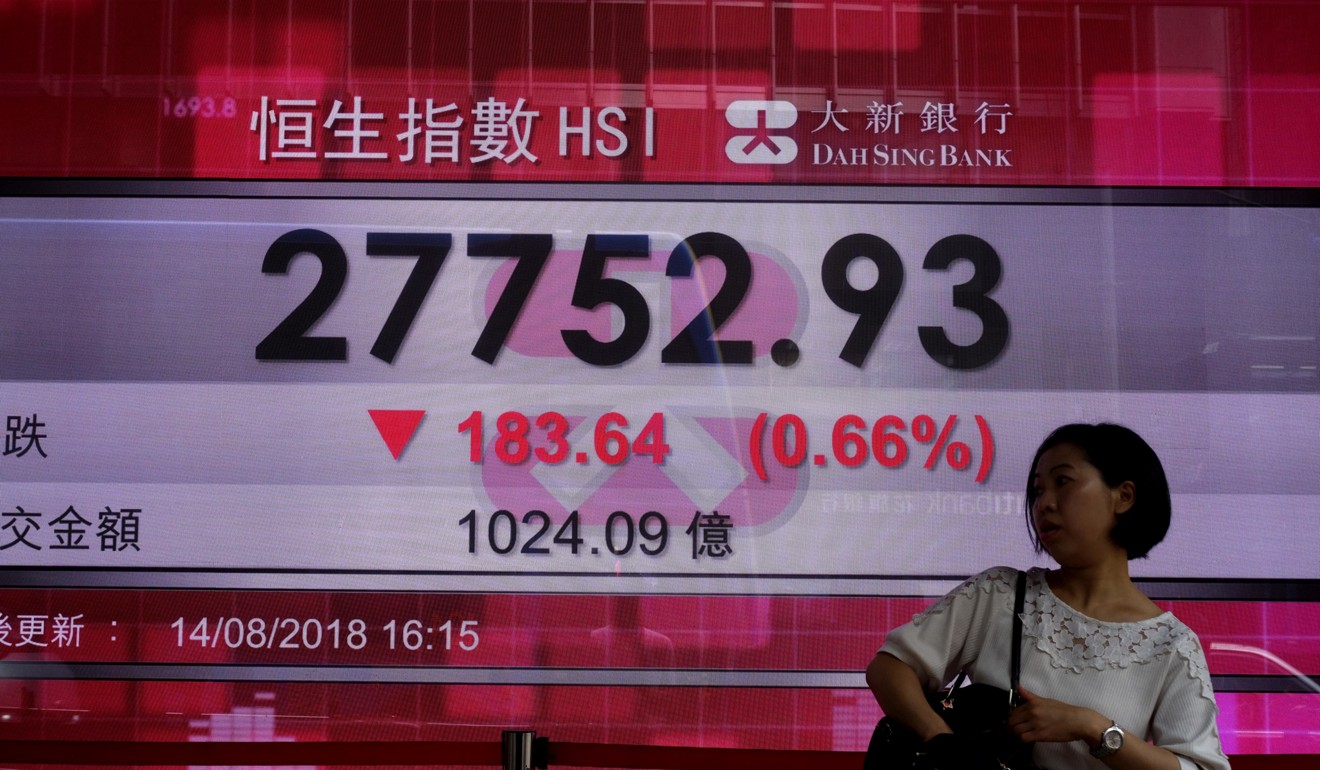
Financial lawmaker tells MPF members: bail out of Hong Kong stocks
Each MPF member has lost an average HK$4,240.10 (US$520) in the value of their pension pots since the turn of the year, as the US-China trade war takes its toll on Hong Kong and mainland stock market performances
The 2.8 million employees paying into Hong Kong’s Mandatory Provident Fund (MPF) have seen their pension pot values thumped if they were heavily invested in stocks listed in the city – and included in that group is Christopher Cheung Wah-fung, the veteran stockbroker and lawmaker representing the financial services sector.
Each member on average has lost HK$4,240.10 (US$520) in the value of their pensions in first eight months of the year, as the US-China trade war took its toll on Hong Kong and mainland stock market performances, according to latest figures from Convoy Financial Services, Hong Kong’s biggest independent financial advice firm, which specialises on the MPF.
If an employee is concerned about Hong Kong stock market, then he or she should consider diversifying their MPF investmentsby picking global stock funds
The MPF is Hong Kong’s compulsory retirement scheme into which employers and employees contribute five per cent each. Employees can choose from a long list of investment funds in which to invest.
But those invested in Hong Kong equity funds have been the hardest hit after the local stock market lost 2.34 per cent in its value in August alone, and 5.77 per cent in the first eight months of 2018, according to analysis by Convoy.
Those who have opted to shift their emphasis onto US stock funds, however, have been the biggest winners as funds focused on there saw a monthly gain of 3.32 per cent in August over July and 9.34 per cent in the first eight months of 2018.
The US market has been driven by strong economic data and solid corporate earnings.
The bond markets have also outperformed stock markets in recent months. Yuan-denominated bond funds rose 0.27 per cent month-on-month in August from July and are up 0.60 per cent in the past eight months.
Global bond funds reported a 0.27 per cent monthly loss in August but and a 1.79 per cent fall since the turn of the year, the Convoy data shows.

According to separate data from Thomson Reuters Lipper, in August the total average monthly return of all 465 MPF investment funds fell 0.63 per cent while their average return for the first eight month dropped 1.68 per cent.
Cheung says his own MPF has dropped over HK$7,000 in value in the period.
“The MPF has too many investment restrictions. I have invested too much of a stake in Hong Kong stocks in my MPF, that market’s been hit hard by the poor performance.
“Maybe it’s time for me and other members to shift our MPF values into overseas markets such as the US or European markets. They may also need to think about bond investment to diversify the risks,” he said.
“There is no sign the trade dispute will come to an end any time soon and this will continue to haunt the three Chinese stock markets for some time yet. Investors may need to consider a more diversified approach,” Cheung said.
There is no sign the trade dispute will come to an end any time soon and this will continue to haunt the three Chinese stock markets for some time yet. Investors may need to consider a more diversified approach
US President Donald Trump imposed tariffs in July worth a combined US$34 billion on Chinese imports while Beijing retaliated with the same value on US imports into China.
The two countries levied more tariffs worth US$16 billion on goods in August, which has led the benchmark Hang Seng Index to fall four months in a row and 7.35 per cent in the last eight months, after soaring 36 per cent last year.
Elvin Yu, a principal at pension consultancy Goji Consulting, is advising investors to plump for global funds instead of going for single markets such as the US – the classic investment strategy of spreading your portfolio.
“If an employee is concerned about Hong Kong stock market, then he or she should consider diversifying their MPF investments by picking global stock funds,” Yu said.
“I don’t hold a very positive view on China, but neither is it too bearish. The US stock market is still fundamentally strong despite its high valuation.
“When interest rates reach 2 per cent then we are likely to see a slowdown, so still be mindful of the US market from next summer onwards,” he said.
“I would then be holding Hong Kong stocks and not jumping into US stocks.”

